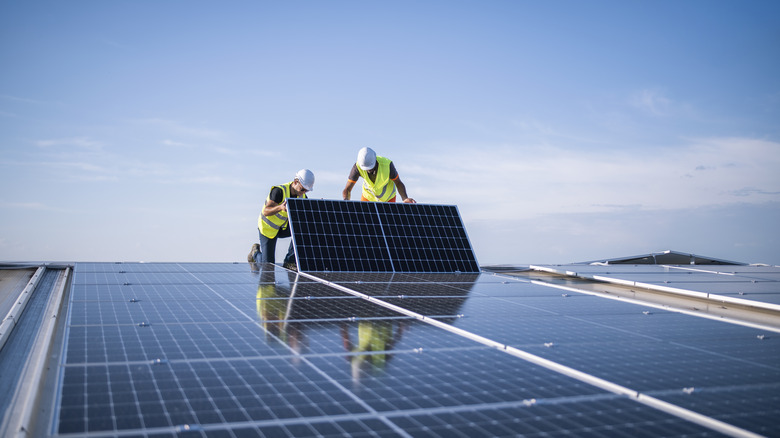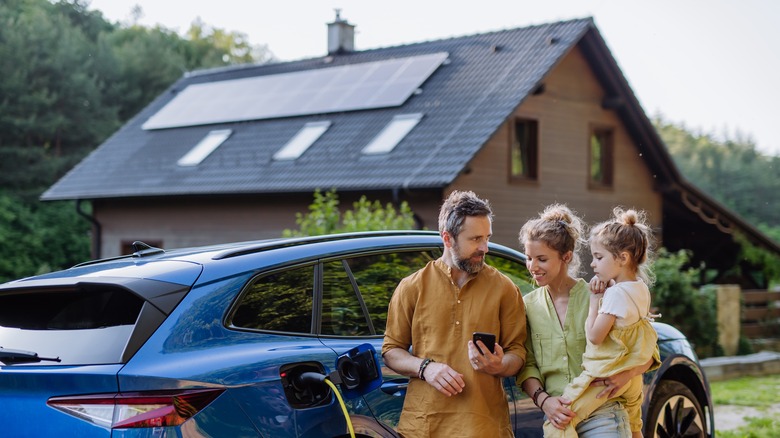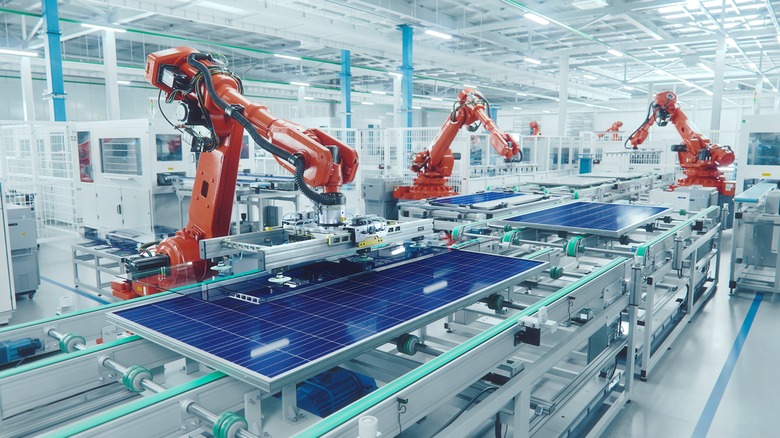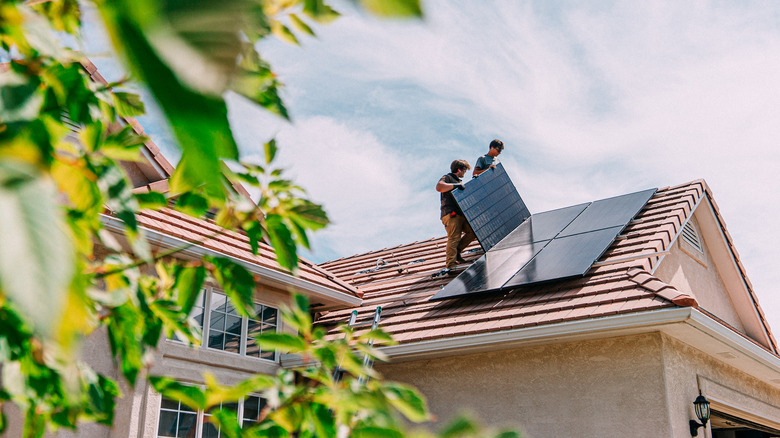Are Solar Panels Bad For The Environment?
Solar system installations saw a significant uptick in 2023, and that number is only expected to increase over the course of the next decade. Federal incentives, like tax subsidies, have played a major role in the interest this clean energy source has garnered over the years, but the fact is that solar panel systems today are also more efficient than they were before.
In fact, solar panels have changed so much over the years that apart from their energy efficiency increasing, they've also seen a significant, almost 70%, drop in prices and have become more accessible, given the fact that you can even purchase solar panels off Amazon, albeit not without risks. Many of these factors have caused both homeowners and businesses alike to turn to solar energy as a sustainable and cost-efficient energy solution, especially in the face of rising electricity prices. That said, while the benefits of solar panels are clear, it helps to take a slightly more nuanced look at the impact these energy systems have on the environment. Below, we've explored some of the most pertinent environmental concerns associated with the widespread adoption and installation of solar energy panels.
Are solar panels environmentally friendly?
The most pressing concern at this point is the inadequacy of the recycling infrastructure available to manage end-of-life materials. In fact, a 2016 report that was prepared jointly by the International Renewable Energy Agency (IRENA) and the International Energy Agency Photovoltaic Power Systems Programme (IEA-PVPS) noted that "As the global PV market increases, so will the volume of decommissioned PV panels, and large amounts of annual waste are anticipated by the early 2030s." Another study by the U.S. Environmental Protection Agency in 2023 noted that only about 10% of solar panels are currently recycled.
Given that solar panels have a finite lifespan, usually ranging between 25 and 30 years, many solar panels that were installed in the early aughts or before are potentially reaching the end of their life, presenting a substantial waste management challenge. Keep in mind that solar panels contain many of the same harmful substances as other consumer electronics, which is why proper disposal of the panels and other components of a solar system is essential. As more and more people invest in solar panels or even upgrade to better panels for more energy savings, the discarded panels are bound to pile up and cause environmental and, potentially even, public health risks in the face of limited recycling options.
The good news is that solar panels are recyclable, and many states, including California, Hawaii, North Carolina, New Jersey, and Washington, have passed regulations and policies regarding the recycling and proper disposal of solar panels and related systems; however, more laws at a state and federal level, as well as supporting waste management infrastructure, will help.
Is there anything else negative about solar panels?
While waste management is one of the most significant concerns regarding the increased adoption of this clean energy source, there are a few other downsides that solar energy systems pose. For one, solar systems are heavily dependent on sunlight, and this can pose a reliability issue for consumers located in states that don't receive year-round sun exposure. If you reside in such a state, you'll likely still be paying high electricity bills despite having solar panels. In this case, the easiest fix is to invest in a solar battery, which can store excess energy for times when sunlight is scarce.
Also, like most other technology, producing solar systems, a process that includes mining, manufacturing, and transporting the materials, uses energy upfront. That said, no form of energy production is free of environmental impact. What's more, a Stanford University report from 2019 noted, "The energy produced over the lifetime of typical rooftop solar panels more than makes up for the energy it takes to make, mount and then eventually recycle them." As long as you manage to recycle your solar waste responsibly, the net impact of solar panels is more positive than negative. Another thing to take into consideration is the per-foot cost of solar panels, which, despite all the incentives and rebates, still requires some degree of financial preparedness. However, as solar technology continues to see advancements, the cost of solar panels, which has been decreasing over the last few decades, is expected to become even more affordable.
Who should install solar panels?
Solar energy is accessible to most homeowners, but it isn't a sound investment for everyone. Keep in mind that the effectiveness of a solar system is largely dependent on your geographical location. Given that solar panels take some time to pay off before repair costs begin eating into those savings, make sure to consider whether or not the area in which your house is located receives sufficient sunlight to offset the initial costs of the system and its installation. If you're located in a region that receives hours of sunlight every day for most of the year, a solar system installation might work out great for you.
Even if you get plenty of sunlight where you live, you'll want to consider if your rooftop has enough space for solar panels. If your roof is narrow, shaded, or not completely flat, you may not be able to install enough panels. In this case, portable solar panels might be a solid choice, but that's an extra expense to account for. Solar panels are also best suited for people who don't plan to relocate in the near future. Uninstalling and transporting solar panels can be difficult and expensive, making them a not-so-great option if you have yet to plant your roots somewhere.



